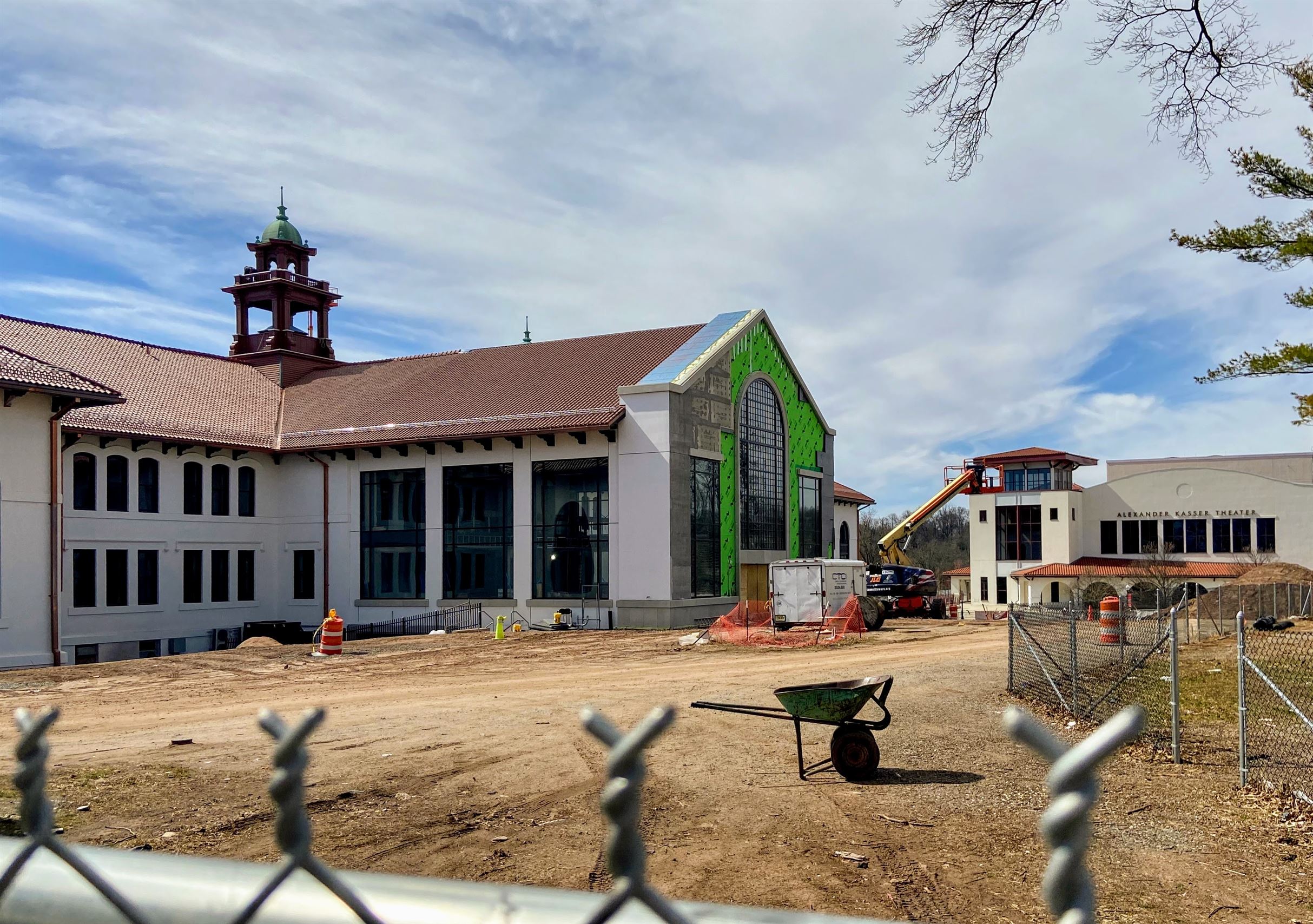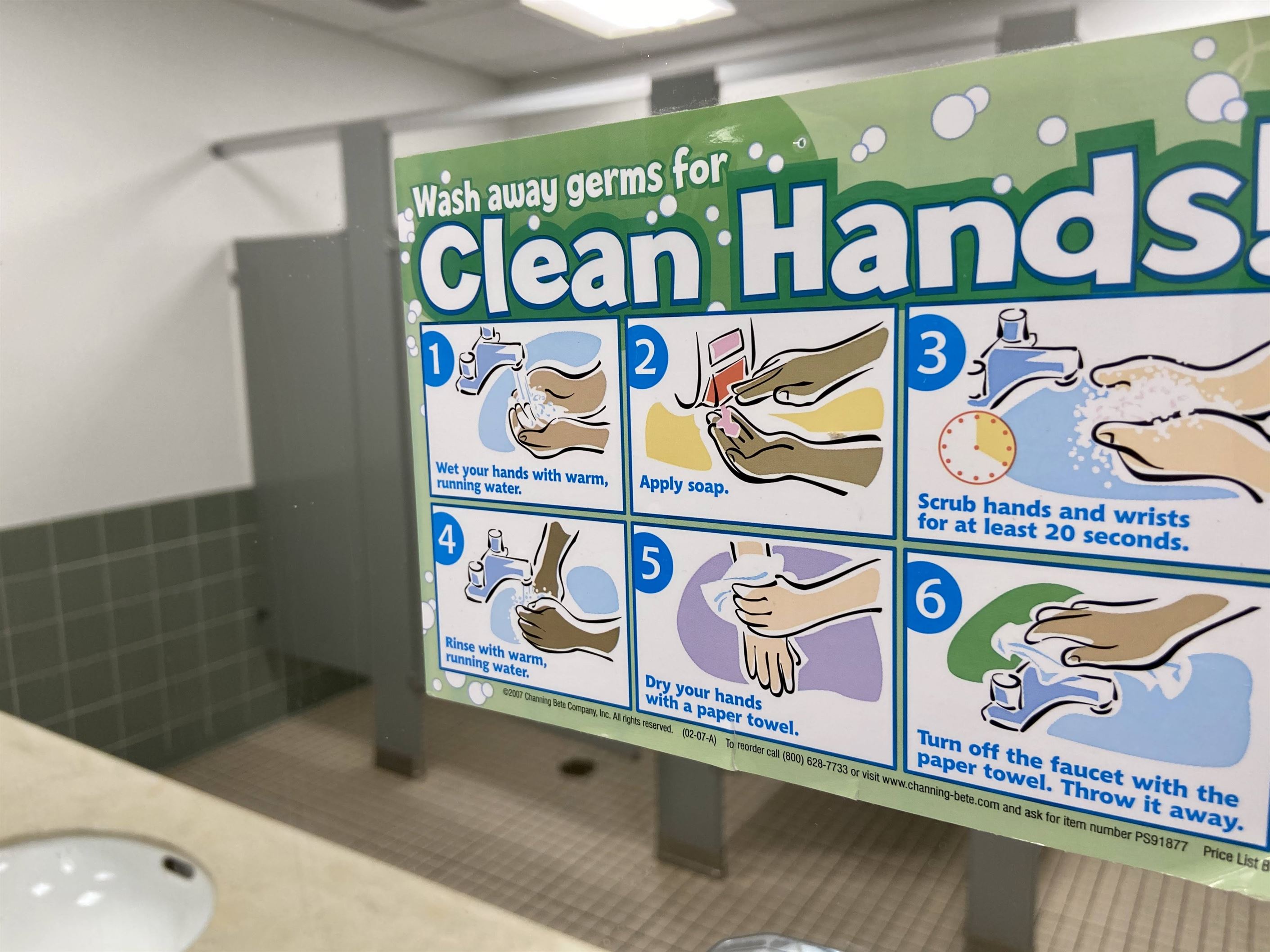This March marks one year since the global pandemic and lockdown due to the coronavirus (COVID-19) pandemic that altered the way we live dramatically.
Montclair State University initially conducted its classes and day-to-day business fully remote until fall 2020, when the university began to offer mixed remote and in-person classes along with clubs and sports being able to practice and meet following safety guidelines.
Now in the spring 2021 semester, there has been a rise of in-person classes and involvement as the COVID-19 vaccine becomes more readily available to the American public. As a one-year anniversary, we look back on the difficult and abrupt transition to a new era of living as well as learning.
The change to virtual remote learning has been notable in not only empty classrooms but a rather empty campus as well.

Montclair State’s campus was mostly quiet and empty this time last year.
Ben Caplan | The Montclarion
Vice President for Student Development and Campus Life, Karen L. Pennington, believes that student life has unfortunately changed in dramatic and difficult ways.
“Seeing the Student Center packed with students, hearing many voices and music out in the quad on a Wednesday afternoon [and] seeing students lying in a hammock outside of the library,” Pennington said. “These are just a few things that I think we all miss and feel as a sense of loss.”
She continued on to talk about her hopes to have a somewhat normal campus come the fall 2021 semester and beyond.
“I believe that next year when classes are back in person for everyone, when students will be able to gather for events in the ballrooms, when the stands at Panzer, Sprague and Pittser are packed with fans, that vibrant student life we have come to know and expect will return,” Pennington said.
The transition from what used to be normal in-person learning to the new virtual mode has been trying on most, if not all students, particularly this year’s freshman class.
Neisha Bayard, a freshman exercise science major, discussed her initial reaction when the lockdown started.
“It was senior year of high school and it felt so rushed,” Bayard said. “It felt like high school ended abruptly, which turned into quarantine, which then suddenly turned into college. So, I didn’t really get to enjoy the senior experience. There is definitely a disconnect because I have not gotten to meet new people since we have been mostly virtual, so it also feels like I haven’t gotten to enjoy the college experience yet either.”
Bayard continued about the “new normal” on campus.
“The pandemic has definitely taught me to not take the normal for granted and this might even be our new normal, so we’ll have to adjust to it,” Bayard said.

Last March, many areas became off-limits on campus to promote social distancing.
Ben Caplan | The Montclarion
Katerina, an international student from Ukraine studying her masters who asked to only be identified by her first name, shared the troubles of studying in a foreign country during a pandemic.
“With the pandemic, I’ve had a lot of problems with traveling, looking for housing, and of course, being an international student, going into a new country I don’t know anyone and being all virtual hasn’t allowed me to meet new people or professors,” Katerina said.
Both Bayard and Katerina agree that going virtual has affected their motivation and made it more difficult to balance different aspects of life.
“It’s been difficult to balance hours for work and for rest,” Katerina said. “It’s difficult when you have everything in one place. The first month was hard, I was eating, resting and studying all in one place, it’s easy to feel overworked.”
Despite the changes in learning, some students simply miss seeing fellow students’ faces scattered around campus.
Sam Angelo, a sophomore business administration major, explains what he misses most about being on campus pre-pandemic.
“What I miss most about school pre-pandemic is the amount of people on campus everyday and being able to meet new people,” Angelo said. “Walking around, seeing our campus so packed everyday was an amazing sight to see.”
Angelo is on the Montclair State baseball team and credits his involvement on the team for helping him stay focused on his work and keeping fit for the season.
The pandemic has presented changes that not only students had to adjust to, but faculty as well.
Jacqueline Regan, an English professor at Montclair State, discussed that the most difficult adjustment was the switch to virtual learning from the traditional in-classroom learning.
“Face-to-face classes create a community, especially in the writing courses, where students learn not just from their instructor but from their peers as well,” Regan said. “I am fortunate to have been able to teach in a hybrid format, so I have an in-person component to my class, but I am looking forward to being back with a full classroom in the fall.”

When COVID-19 first arrived on campus, College Hall was still under construction.
Ben Caplan | The Montclarion
Through the many hardships and challenges faced, the faculty, staff and students that make up Montclair State have faced the pandemic head-on and demonstrated the resilience they have as a community.
Media Relations Director, Andrew Mees, discussed the perseverance of Montclair State to provide their students with the best and safest way to overcome the obstacles the pandemic has presented.
“Our faculty moved the spring 2020 courses completely online in just two weeks, by itself a remarkable effort, and our students, faculty and staff have come together throughout the year to create new and innovative ways of teaching, learning and community service,” Mees said.
Mees went on to credit the campus community’s strength.
“We continue to be in awe, though not surprised, of how our community has pressed on and come together to ensure we can provide the same critical services to students, faculty, staff and our surrounding communities,” Mees said. “It is a testament to the character that makes every Red Hawk successful in whatever they choose to pursue for the rest of their lives.”
The university has come a long way since last March, constantly adjusting to try and emulate the feeling of normalcy throughout campus while also ensuring the safety of everyone.
What was once an empty campus is now beginning to be filled with impromptu kickball games, outdoor classes and cheers from sports events. It has been a difficult transition and experience for many, if not all, but it will take time to adjust to a new way of living and learning post-pandemic.



